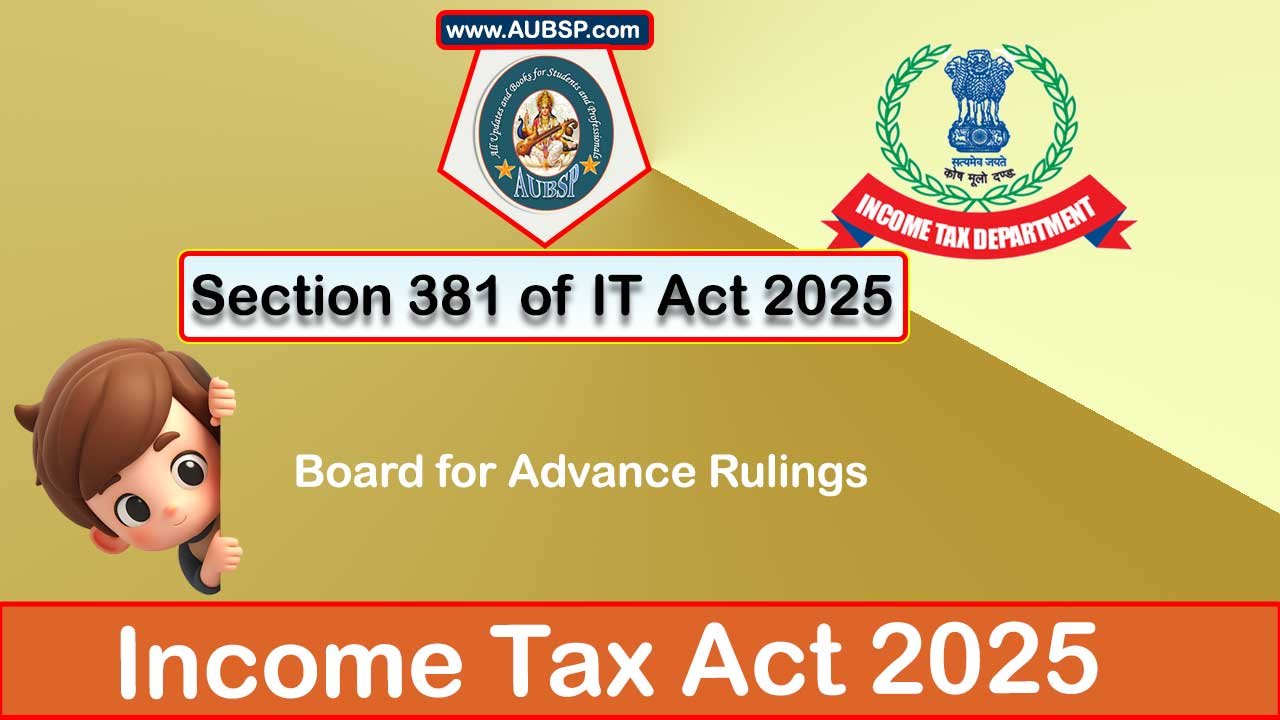Board for Advance Rulings
[Section-381 as per the Income Tax Act, 2025 (this Act) w.e.f. 1st April, 2026.]
Section 381(1) of Income Tax Act 2025
381(1) The Central Government shall constitute one or more Boards for Advance Rulings, as may be necessary, for giving advance rulings under this Chapter on or after such date as the Central Government may, by notification, appoint.
Section 381(2) of Income Tax Act 2025
381(2) The Board for Advance Rulings shall consist of two members, each being an officer not below the rank of Chief Commissioner, as may be nominated by the Board
FAQs on Section 381 of Income Tax Act 2025
What is the purpose of constituting a Board for Advance Rulings under the Income Tax Act, 2025?
The purpose of the Board for Advance Rulings is to provide advance rulings on tax matters under the relevant chapter of the Act to taxpayers seeking clarity on prospective tax liabilities.
Who has the authority to constitute the Board for Advance Rulings?
The Central Government has the authority to constitute one or more Boards for Advance Rulings as it deems necessary.
From when will the provisions of Section 381 be effective?
The provisions of Section 381 will be effective from 1st April, 2026.
Can there be more than one Board for Advance Rulings?
Yes, the Central Government may constitute more than one Board for Advance Rulings if required.
How will the commencement date for the functioning of the Board be decided?
The commencement date for the functioning of the Board will be appointed by the Central Government through a notification.
Who are the members of the Board for Advance Rulings?
The Board consists of two members, each of whom must be an officer not below the rank of Chief Commissioner.
Who nominates the members of the Board for Advance Rulings?
The members are nominated by the Board, as per the provision of Section 381(2).
What rank must the members of the Board hold?
Each member of the Board must be an officer not below the rank of Chief Commissioner.
Is the Board for Advance Rulings a permanent body?
The Act allows the Central Government to constitute the Board as necessary, which implies flexibility rather than permanence. The composition and continuity may depend on administrative needs.
Does the Act mention how the rulings of the Board are to be treated?
Section 381 does not specify this; it only covers the constitution and composition of the Board. The nature and binding effect of the rulings would be addressed in other provisions of the chapter.

